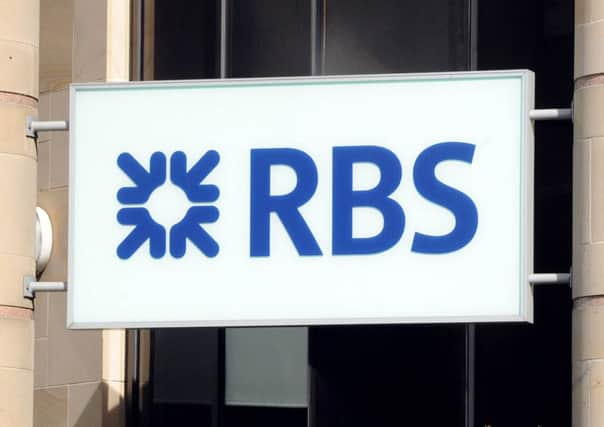George Osborne under pressure over £1bn RBS loss


The Treasury has raised £2.1bn from the sale, a third below the price it paid when the government saved RBS from financial collapse in 2008 and 2009 by buying shares for about £45bn and supplying it with cheap funds.
Mr Osborne insisted the sale was the “right thing to do for the taxpayer” and said cash raised from offloaded shares in the bank would be used to reduce the national debt.
Advertisement
Hide AdAdvertisement
Hide AdHowever, the Chancellor is facing criticism over the timing of the Treasury’s decision to sell its 78 per cent stake in RBS after the taxpayer has been left nursing a £1.08bn loss.
The SNP also called on Mr Osborne to ensure taxpayers “get every single penny back” from the initial UK government bailout.
UK Financial Investments (UKFI), the body that holds the government’s RBS stake, said it sold 5.4 per cent of RBS at 330p a share overnight – far short of the average 502p price paid at the time of the bailout.
The controversial sell-off was made to City of London institutions with the discounted shares in RBS not offered for sale to the public.
Labour’s shadow chancellor Chris Leslie accused the Chancellor of wasting £1bn of taxpayers’ cash and of failing to attempt to recover the loss. He said: “George Osborne’s rush to begin the sell-off of RBS has meant a loss to the taxpayer of as much as £1bn.
“Getting back the taxpayers’ money is not an impossible objective and the Chancellor is dismissing this too lightly.”
Mr Osborne said the move was the most significant reform of the banking sector since Gordon Brown’s government partially nationalised it.
He said: “This is an important first step in returning the bank to private ownership, which is the right thing to do for the taxpayer and for British businesses: it will promote financial stability, lead to a more competitive banking sector, and support the interests of the wider economy.
Advertisement
Hide AdAdvertisement
Hide Ad“Now is the time for RBS to rebuild itself as a commercial bank, no longer reliant on the state, but serving the working people of Britain.
“I wasn’t the Chancellor who bailed out RBS; but I am the Chancellor now responsible for doing the right thing for the British economy.
“So while the easiest thing to do would be to duck the difficult decisions and leave RBS in state hands, the right thing to do for the economy and for taxpayers is to start selling off our stake. So today that’s what we’re doing.”
The UK government is set to sell about three quarters of its holding in RBS by the end of the five-year parliament.
However, Labour leadership contender Yvette Cooper, who was chief secretary to the Treasury at the time of the banking crash, accused Mr Osborne of a disastrous handling of the sale.
Ms Cooper said: “The sell-off of RBS shares has been handled disastrously and it is British taxpayers – who stepped up to bail out the banks in the first place – who are losing out.
“George Osborne needs to explain urgently why he has got us all such a bad deal.”
SNP deputy leader Stewart Hosie MP said: “The taxpayer should not be short-changed by the Chancellor.
Advertisement
Hide AdAdvertisement
Hide Ad“It is to be welcomed that RBS is moving back into the private sector, however it should not be on the cheap.
“Once the full sale of the stock is complete, the taxpayer must receive the full £45.8bn paid in 2008.
“The public must get every single penny back.”
SEE ALSO